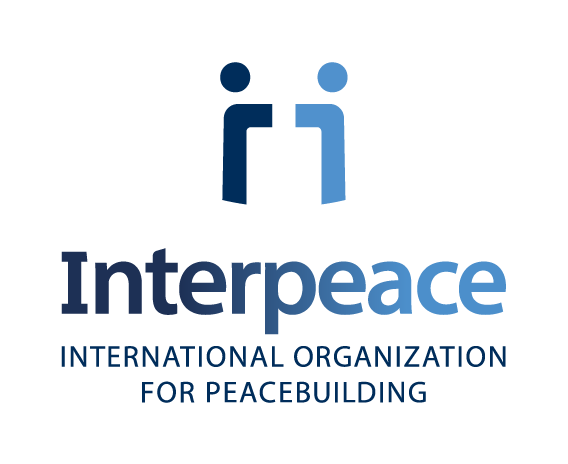‘Outside the box’
Interpeace facilitated the completion in 2022 of nine YPS-focused Policy Briefs, most of which were also written by youth authors. Each addressed an issue of policy or practice that is important to young women and men, but which has not received sufficient attention in the YPS agenda or its implementation. The Interpeace website launched a dedicated webpage and platform in 2022, titled ‘Outside the Box: Amplifying Youth Voices and Views on YPS Policy and Practice’.
Youth leadership series
Seven years ago, Resolution 2250 of the UN Security Council on Youth, Peace and Security (YPS) recognised the positive contribution of young people to the maintenance and promotion of peace and security; and urged Member States to increase the representation and meaningful participation of youth in conflict prevention and peacebuilding efforts. In its implementation, however, the YPS agenda has faced challenges in terms of access, resources and representation. Despite increased recognition, youth voices, research, and priorities often continue to be overlooked in practice. In addition, youth are often considered through a narrow, security-focused lens.
Interpeace has worked and partnered with youth for almost thirty years in Africa, Latin America, Europe, the Middle East and Asia, in countries where young people are affected by protracted conflict and face physical violence, forced recruitment into armed groups, intergenerational transmission of trauma, and forced displacement, or have lost access to schooling, jobs and livelihood opportunities. From its inception, Interpeace has recognised that investing in young people’s agency and leadership will have a profound impact on efforts to build sustainable peace. A key goal of our programmes is therefore to strengthen the resilience capacities of youth and prioritise their participation in social and political areas where their involvement is critical: climate change, transitional justice, and mental health, to name three.
Currently, the YPS agenda is addressed by most of Interpeace’s country programmes, including Côte d’Ivoire, Burundi, Yemen, Burkina Faso, Rwanda, Somalia, and the regional programme in Africa’s Great Lakes.
‘Outside the box’

Interpeace facilitated the completion in 2022 of nine YPS-focused Policy Briefs, most of which were also written by youth authors. Each addressed an issue of policy or practice that is important to young women and men, but which has not received sufficient attention in the YPS agenda or its implementation. The Interpeace website launched a dedicated webpage and platform in 2022, titled ‘Outside the Box: Amplifying Youth Voices and Views on YPS Policy and Practice’.
For our youth authors, the platform provided an opportunity to be published. In addition, they were able to take part in platforms and dialogues, and network with others.
Youth leadership series
Interpeace co-organised a series of seminars on YPS in partnership with Ulster University, the John and Pat Hume Foundation, and the International Fund for Ireland, which deepened the exposure of young people in Northern Ireland (particularly young women leaders), to global YPS movements and young peacebuilding leaders across the globe.
Interpeace co-organised two youth leadership seminars in 2022. One discussed ‘Youth Visions for Peace’ and the challenges youth peacebuilders face formally and informally when they mobilise. The second, titled ‘Youth Perspectives on Climate, Peace and Security’, examined the role of youth in peacebuilding and climate action. Before each seminar, the speakers – two from abroad, one from Northern Ireland - had closed door dialogues with youth activists from Northern Ireland and the Republic of Ireland. Interpeace was responsible for bringing in international actors, helping to set the agenda for the discussion, and contributing to the events themselves.
Initially the youth leaders were most conscious of their own communities; they had not engaged with peacebuilders in other contexts. The opportunity to speak with youth from other places led them to recognise common challenges and tactics, and review the parameters of their work as well as the potential relevance of frameworks such as the YPS agenda. For example, in a session on the links between climate and peacebuilding, youth climate activists and youth peacebuilders noted that they worked best when they could identify common ground and could make macro questions relevant to the lives of people in their communities. Meeting youth leaders from other places generated challenging conversations across sectarian lines and sparked new peacebuilding strategies.

